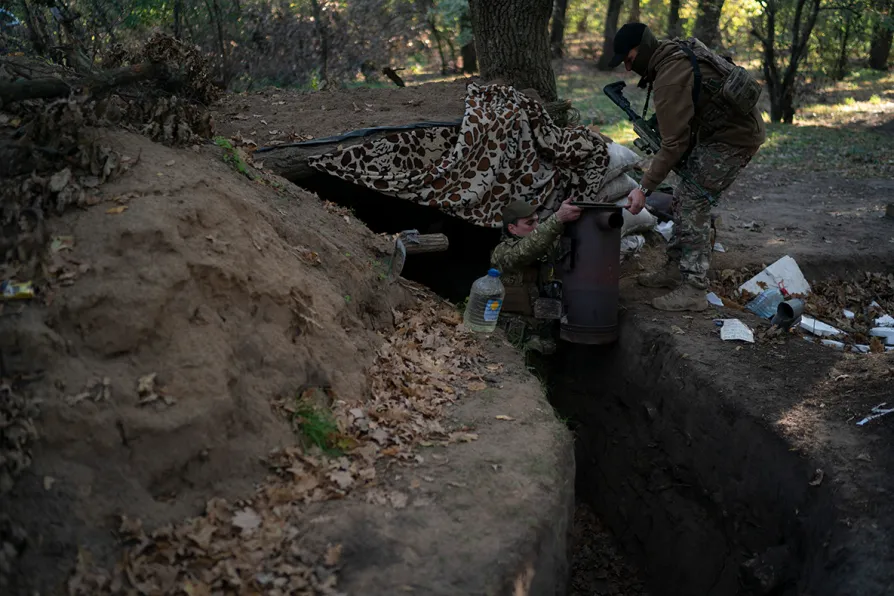Russia promises to house those from annexed region as Ukrainian counter-attack continues

 Ukrainian servicemen check the trenches dug by Russian soldiers in a retaken area in Kherson region, Ukraine, Wednesday, Oct. 12, 2022
Ukrainian servicemen check the trenches dug by Russian soldiers in a retaken area in Kherson region, Ukraine, Wednesday, Oct. 12, 2022
MOSCOW promised free accommodation in Russia to residents in a region it recently annexed today as Ukrainian forces continued to make military advances.
Russian Deputy Prime Minister Marat Khusnullin made the announcement after the leader of Kherson, where Ukrainian troops have pushed a counter-attack in recent weeks, asked the Kremlin to organise an evacuation from four cities in the region.
“We suggested that all residents of the Kherson region, if they wish, to protect themselves from the consequences of missile strikes ... go to other regions,” Kherson administration chief Vladimir Saldo said in a video message.
Similar stories














